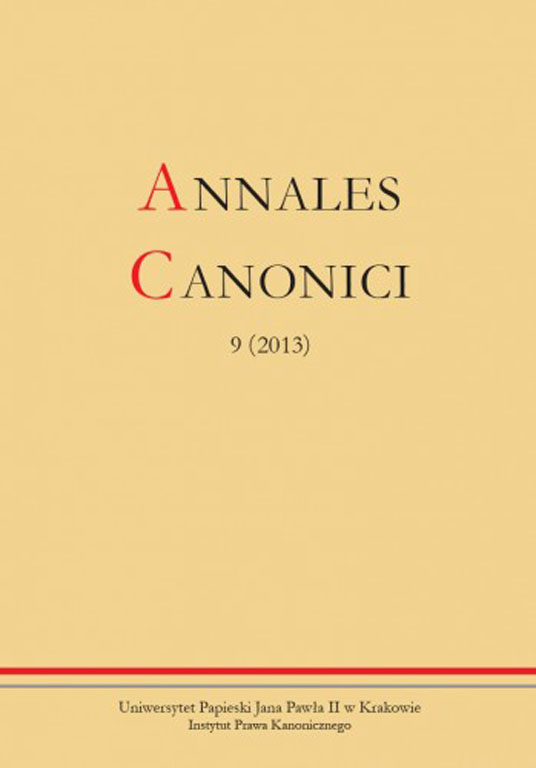Zasady zawierania umowy dzierżawy w Kodeksie prawa kanonicznego z 1983 roku
The Rules of Lease Agreement in the Code of Canon Law 1983
Author(s): Paweł KaletaSubject(s): Canon Law / Church Law
Published by: Wydawnictwo Naukowe Uniwersytetu Papieskiego Jana Pawła II w Krakowie
Keywords: canon law; lease; alienation; particular law; temporal goods
Summary/Abstract: Leasing is one way of managing wasteland belonging to the ecclesiastical juridical per- son. e equivalent of this contract is the payment of rent to lessor. Cannon Law uses regulations connecting with alienation (cc. 1291–1294) to protect the ecclesiastical goods belonging to the juridical person, from the risk of a worse economic condition. e Polish Bishops’ Conference has not developed appropriate standards in connection with cc. 1297, therefore the statutory ecclesiastical right of the juridical person should be retained, in the event of their absence, the particular law established by the diocesan bishop allows for those subordinate to the Church, the power of corporation. e validity of the lease agreement should include: To observe the civil law in the given country, to obtain the written consent of the relevant authority prior to procedures,in event of alienated goods being divisible, the request for permission for alienation must mention goods previously alienated. e fairness of legal actions includes: to identify a legitimate cause, the valuation of goods alienated, to identify the tenant and his rela- tionship with the administrator of church property and undertake other precautions such as the duration or withdrawal from the lease.
Journal: Annales Canonici
- Issue Year: 9/2013
- Issue No: 1
- Page Range: 119-137
- Page Count: 19
- Language: Polish

